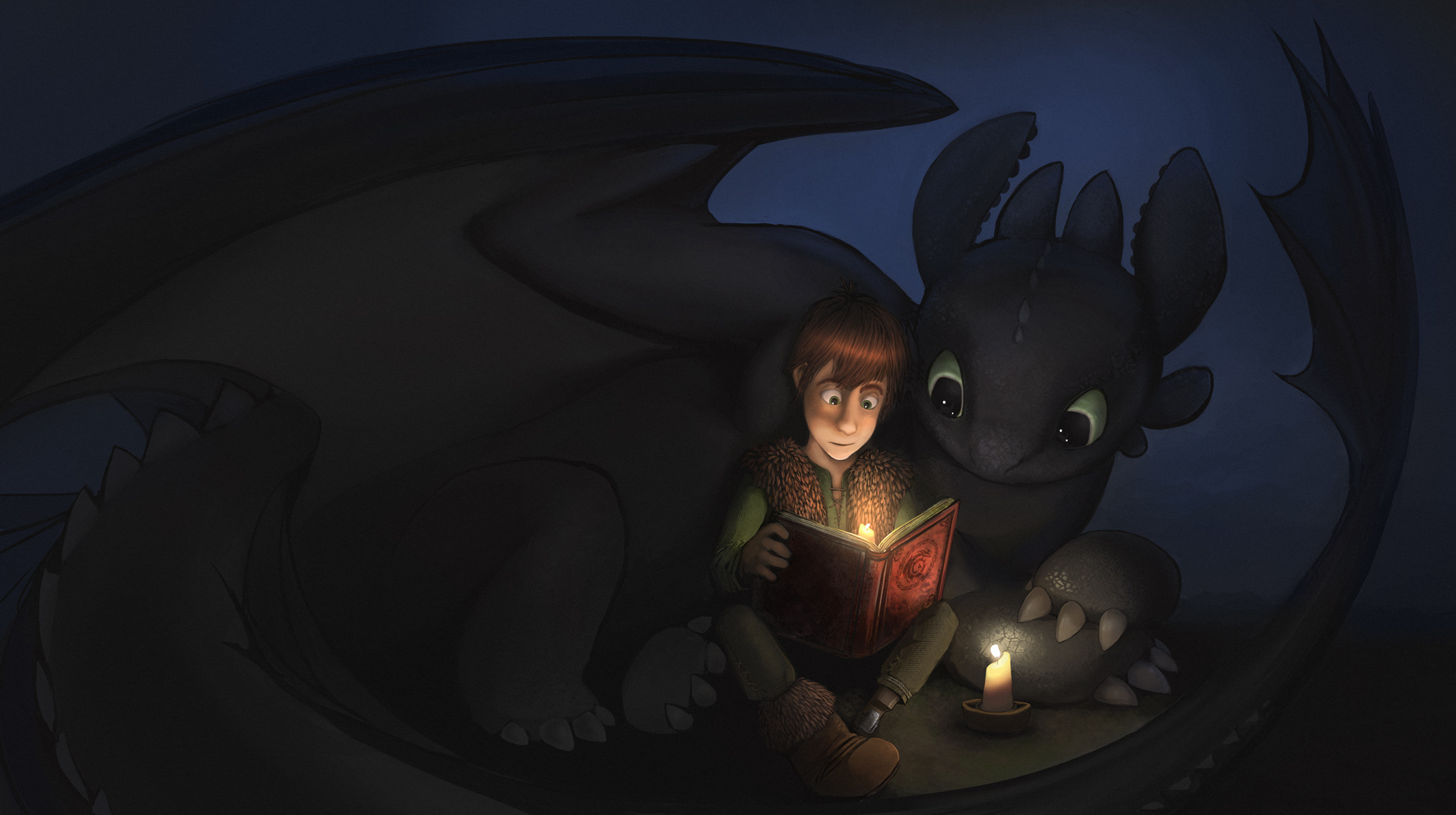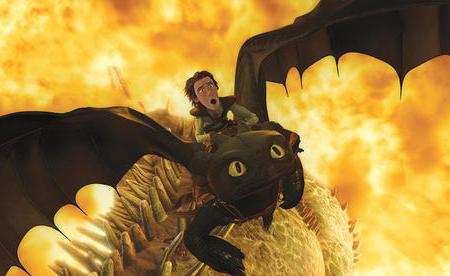(Spoiler Alert)
 What does a giant dragon-eating dragon have to do with the war in Iraq? What can a cartoon teach us
What does a giant dragon-eating dragon have to do with the war in Iraq? What can a cartoon teach us The movie begins with a war state (i.e. a society that centrally plans its economy to more effectively wage war) and ends with a free state (based on voluntary trade). This dichotomy realistically represents the inherent contradiction between war and freedom, and between war and prosperity.
Viking Economy
Viking children in the movie are raised from youth to be soldiers, similar to what the ancient Spartans practiced. In Sparta, children born with birth defects were tossed headfirst into a chasm. While the Viking society does not go to this extent, both operate under the same assumption that the safety of the collective is more important than the liberty of the individual. The lives of Viking children are highly regimented, and straying from the status quo is discouraged.
The cradle-to-grave control of the children's lives demonstrates that Viking economy was highly centralized. Many war states tend to push for more and more control of the economy, even though centrally planned states have always lost in wars against economically free states. Free states win, because a laissez-faire economy is able to respond much more quickly to changes in demand, with higher-quality and more affordable goods—even if the demand is for war goods—than a centrally planned economy. Each individual knows what he wants better than anyone else, even so three-hundred-million people are better able at making economic decisions that affect themselves better than a single president, or a small group of intellectuals.
The desire for centralized control, in the face of its inefficiency, may be attributed to the hubris of the state’s leader. A person who thinks he is wise enough to sacrifice another man’s life for the sake of the collective will have no qualms appropriating a business. To the warmongers, businessmen, like soldiers, are just more fodder for the cause. The economy, instead of being a myriad of individuals benefiting from an incalculable volume of voluntary transactions, becomes enlisted—another group of grunts following orders. Instead of being motivated by personal prosperity, every individual is coerced with the threat of death from abroad or punishment (including death) from home.
War Propaganda
 The enemy must be dehumanized before rational people can become convinced to kill. Thus any interaction with the enemy is forbidden, and befriending the enemy is labeled treason. The state publishes propaganda to convince the people that the war is just, and that the enemy deserves to die. In this vein the Vikings prohibit any peaceful contact with the dragons, and teach the children from and early age, using only state-approved books, that dragons are evil. Hiccup’s father disowns him after learning that he is a “dragon-lover.”
The enemy must be dehumanized before rational people can become convinced to kill. Thus any interaction with the enemy is forbidden, and befriending the enemy is labeled treason. The state publishes propaganda to convince the people that the war is just, and that the enemy deserves to die. In this vein the Vikings prohibit any peaceful contact with the dragons, and teach the children from and early age, using only state-approved books, that dragons are evil. Hiccup’s father disowns him after learning that he is a “dragon-lover.”The inhabitants of a state continuously at war become savage and brutal. Being taught to hate, and to not think critically, from an early age, creates several generations of people who have grown up not knowing freedom or peace. These people know only war, and have ceased even to have hate in their hearts. Worse than hating their enemies, they cease to feel anything for them. Killing becomes a sport, a fun past-time. Brutal and bloody games are invented as a coming-of-age ritual, to prove one’s bravery and courage. This kind of blood-thirst is horrifically described elsewhere.
Americo-centric Bias
The dragon society is built around America’s view of war. Americans see themselves as liberators. If we could only get rid of whatever evil tyrant who rules over this or that country, then we could live peacefully with them. Kill the big bad dragon, and they’ll greet us as liberators. Unfortunately, as wikileaks recently revealed, America often supports dictators, until it becomes politically convenient to assassinate or overthrow them.
Once the big bad dragon is killed, the societies do mesh together, and correctly show the benefits that peaceful trade has over war. During wartime, the ruling class of Vikings was able to command an extreme amount of power, and the dragons got to steal the Vikings' fish and sheep. But during a time of peace, the Vikings were able to trade their surplus food for the services of flight and fire that the dragons had to offer. Peace fosters prosperity, and a free-market provides huge incentives to avoid war. Genius and economist Ludwig von Mises put it simply:
“If the tailor goes to war against the baker, he must henceforth produce his bread for himself.” (Human Action
 p. 828).
p. 828).
The dragons, for example, were unable to raise sheep or fish for themselves. By cutting themselves off from this trade, they had to make desperate attacks on the Vikings or else risk starvation. Similarly, the Japanese attack on Pearl Harbor was a desperate attempt to secure a supply of gasoline, which they were unable to produce domestically. Gas had been available during peacetime, but was cut off because of the war.
Both societies benefited more from peace, though the ruling elites benefited far more during war (for example: Viking leaders got to dictate every phase of a Viking's life, and the king dragon got to eat for free.) For this reason, the ruling class has to convince the masses that war is in fact for their benefit, though those who prosper are generally a few politically-connected businessmen and politicians (think military-industrial complex, the guys who make Viking swords and catapults). The propaganda that war is good for the economy has been ingrained so well through our public education system (which teaches that WWII got us out of the great depression), that most Americans believe it. This falsehood is easily disarmed again by Mises:
“War can really cause no economic boom, at least not directly, since an increase in wealth never does result from destruction of goods.” (Nation, State, and Economy, p. 154)
This movie realistically illustrates that the war state is diametrically opposed to freedom. Offensive, imperial wars necessitate massive amounts of lives and money, which are only available if a sovereign can coerce vast amounts of money from his subjects. And if that is possible, freedom has already gone by the wayside. For a free people will quickly end a war if they see it cutting too sharply into their liberties (economic and political). People in bondage to a tyrant do not have the freedom to end war. Their money is taken regardless of their protestations. And if conscripts toss their weapons to the ground and refuse to fight, they are shot. Or eaten, in the case of dragons.


No comments:
Post a Comment